We don’t need another hero; why a complex world calls for connected leadership
 Dr Simon Hayward, CEO of Cirrus Much of the focus of leadership development over the last two decades has been on developing inspirational or transformational leaders. We’ve seen a lot of ‘hero’ leaders – people who single-handedly set the tone, and take all the decisions. There are still a lot of hero leaders around today, leading organisations and entire countries. The problem is, many create a great deal of dependency and stifle the people around them. While they are capable of achieving short-term success, they often struggle to sustain this success over time. Why is this? Put simply, the world has changed. Things have become a lot more unpredictable. We have had a digital revolution. Political upheaval. A financial crisis.
Dr Simon Hayward, CEO of Cirrus Much of the focus of leadership development over the last two decades has been on developing inspirational or transformational leaders. We’ve seen a lot of ‘hero’ leaders – people who single-handedly set the tone, and take all the decisions. There are still a lot of hero leaders around today, leading organisations and entire countries. The problem is, many create a great deal of dependency and stifle the people around them. While they are capable of achieving short-term success, they often struggle to sustain this success over time. Why is this? Put simply, the world has changed. Things have become a lot more unpredictable. We have had a digital revolution. Political upheaval. A financial crisis.
The pace of change has increased. Leaders have had to change too. Today’s unpredictable world demands a more inclusive and less individualistic style. This encourages a positive culture in which people are motivated to give their best, leading to increased levels of employee well-being and engagement. This in turn leads to improved productivity and people actively choosing to take increased responsibility. Command-and-control leadership still prevails, but it is failing us. Traditional, hierarchical organisations are finding it difficult to be agile and adaptive enough to cope with the pace of change. We’ve seen many household names fail to keep up with rapidly altering marketplaces. Global leaders such as Kodak and BlackBerry, who once appeared so unassailable, failed to stay ahead of the markets they once led.
The solution? Rather than relying on people at the top of an organisation, we need to devolve decision making across the business. Working as a leadership consultant, I observed that most successful leaders connect people across organisations to strategic goals and to customers by developing a shared agenda through purpose, direction and values. They encourage a culture of collaboration. They stimulate a high degree of empowerment and trust that each person and team will perform to the best of their ability. They increase agility through developing a learning culture that drives innovation and ruthless prioritisation. Values and authenticity are extremely important to them. I am impressed by leaders who are genuine role models. When leaders behave in ways that show how much they prize integrity, organisational culture tends to reflect this.
It is more likely that people across the business will deliver on their promises to each other and to customers. My fascination with this type of ‘connected’ leadership led me to make it the focus of my doctoral research over five years at Alliance Manchester Business School. The rigour of academic research enabled me to create a model of Connected Leadership. This is centred around becoming more valuesbased, more collaborative, and sharing responsibility. After completing my research, I was commissioned by FT publishing to write a practical guide to Connected Leadership, combining my academic research with real-world business examples.
A.G.Sonali Silva

























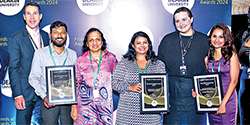


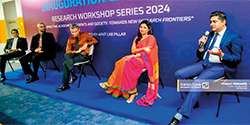





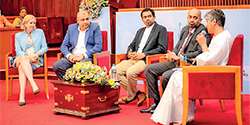

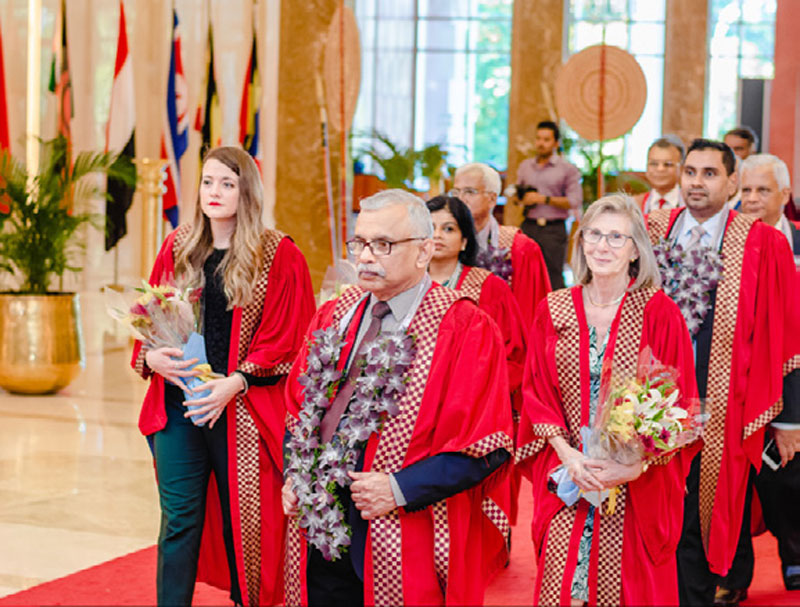


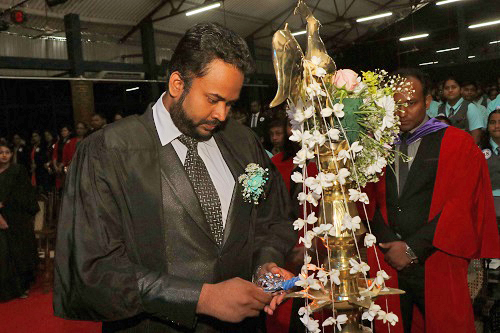

.jpg)
.jpg)

.jpg)
.jpg)
.jpg)
